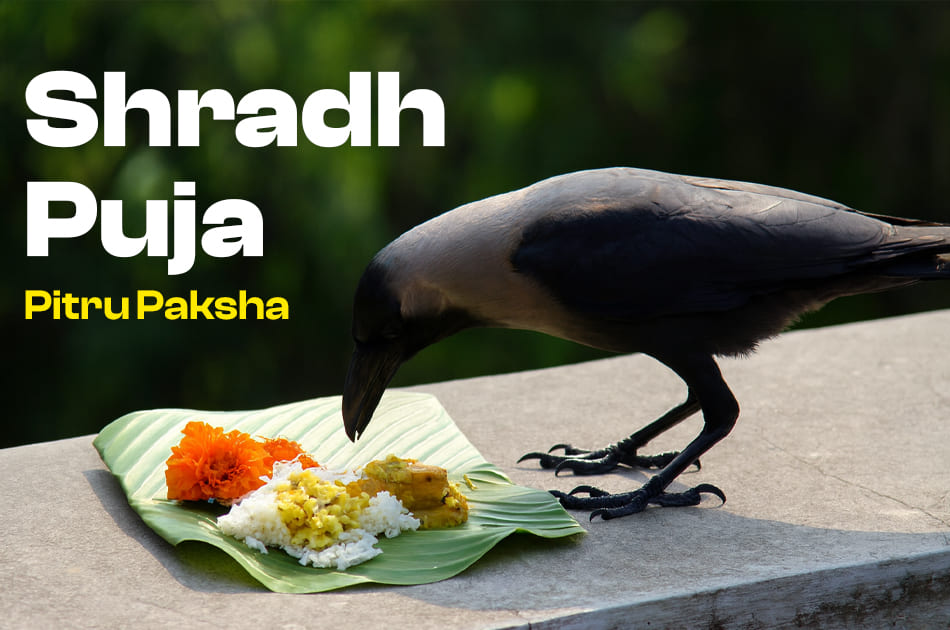Home > Our Blogs > Shradh Puja: Complete Guide to Rituals, Beliefs, and Traditions
Shradh Puja: Complete Guide to Rituals, Beliefs, and Traditions

Shradh Puja is one of the most sacred rites of Hinduism done to honour one’s ancestors (Pitrs). Performed with worship and reverence, this rite is regarded as a source of great peace for the departed souls and a source of harmony and prosperity in the family. Through this article, we explore the significance, rites, beliefs and traditions of Shradh Puja here on Astro Real.
What is Shradh Puja?
Shradh Puja is the act of performing rites to acknowledge one's debt of gratitude to one's ancestors and to ask for forgiveness. The word 'Shradh' or 'shradha' means 'faith' or 'devotion' in Sanskrit and represents the respect and reverence which a descendant has for their ancestor. It is performed during Pitru Paksha, which is 16 days in the lunar calendar, usually occurring in September or October.
The rite signifies that blessings from one's forefathers secure prosperity, well-being, and spiritual guidance.
Significance and Beliefs
Astrological Perspective: From an astrological perspective, Shradh Puja has benefits to your ancestral karma, creates positive planetary placements for prosperity due to the influence of the Sun & Jupiter, and brings peace to the family.
Belief: Many people believe that the offerings performed in the Shradh are received as food in the world of subtle space, where the ancestor's soul remains, feels peace and joy, and is rewarded with blessings for descendants, prosperity, health and unity.
Spiritual Dimension: The rites of Shradh Puja bind us to our roots and further establish family connections to help carry forward beliefs and traditions.
Rituals of Shradh Puja
Shradh Puja consists of some key rituals performed with a sense of devotion:
Tarpan (Water Offering):
The water, combined with barley, sesame, and sacred words, is offered to the ancestors. The offering is cleansing and respectful.
Pind Daan (Rice Balls Offering):
Rice balls, in many cases, created with sesame seeds, are offered to deceased souls as food. The Pind Daan is the main offering made during the Shradh ceremony.
Feeding Religious Figures:
Feeding the Brahmins or priests is considered the same thing as feeding the ancestors. The blessings will flow back to the family.
Light a Lamp and Chant Mantras:
A diya (lamp) is lit, and the sacred words are said, ie. Gayatri Mantra or Pitru Mantras, to call the blessings of the ancestors.
Charity & Donations:
Donating clothes, offering food, or giving grains to the needy persons on this day is very auspicious, as it has the potential to maximise the accumulation of good karma.
Customs Related to Shradh Puja
The puja is traditionally done in the waning phase of the moon (Krishna paksha) as it's believed that during this time, the souls of our ancestors come to earth.
Regional Expressions:
Culturally, the special puja remains, but the rituals may vary in regions in India. For example, in Bihar and UP, relatively long ceremonies may happen at river banks, while in Maharashtra, the family may do Tarpan inside their house and just place their ritual ingredients on a simple plate.
Special foods:
Traditionally, kheer (rice pudding), some fruits and siyun (sesame-based dishes) are offered to the ancestors as these are generally believed to be favoured by ancestors.
Astro Real Tips for Performing Shradh Puja
- Choose a good day and time (generally during pitru paksha) to maximise benefits.
- Wear clean and preferably traditional dress, which establishes ritual purity.
- Maintain the cleanliness of the house and puja because clean spaces promote good positive energy.
- Sincerely pray with devotion and gratitude; the key is sincerity, only perfection in ritual is secondary.
- You may consider visiting holy rivers, such as the Ganga, or performing Tarpan near water; your puja's spiritual effects will enhance exponentially.
Conclusion
Shradh Puja is simultaneously a ritualistic offering and a recognition of our ancestral lineage. Shradh Puja has many upsides. It is a family event in faith, in which we liberate karma from our ancestry, not only from our nuclear family, but also create peace and prosperity in our lives. If you take part and try to acknowledge all the traditions, beliefs, and astro-intuitions that Astro Real grants, you will be in the best position possible to avoid losing, ignoring, or disrespecting this sacred obligation. You will do your family the greatest due diligence for their benefit.
Perform Shradh Puja with devotion, thanks, and awareness, and you will see the living connect to the departed.








Comments
No comments yet. Be the first to comment!


